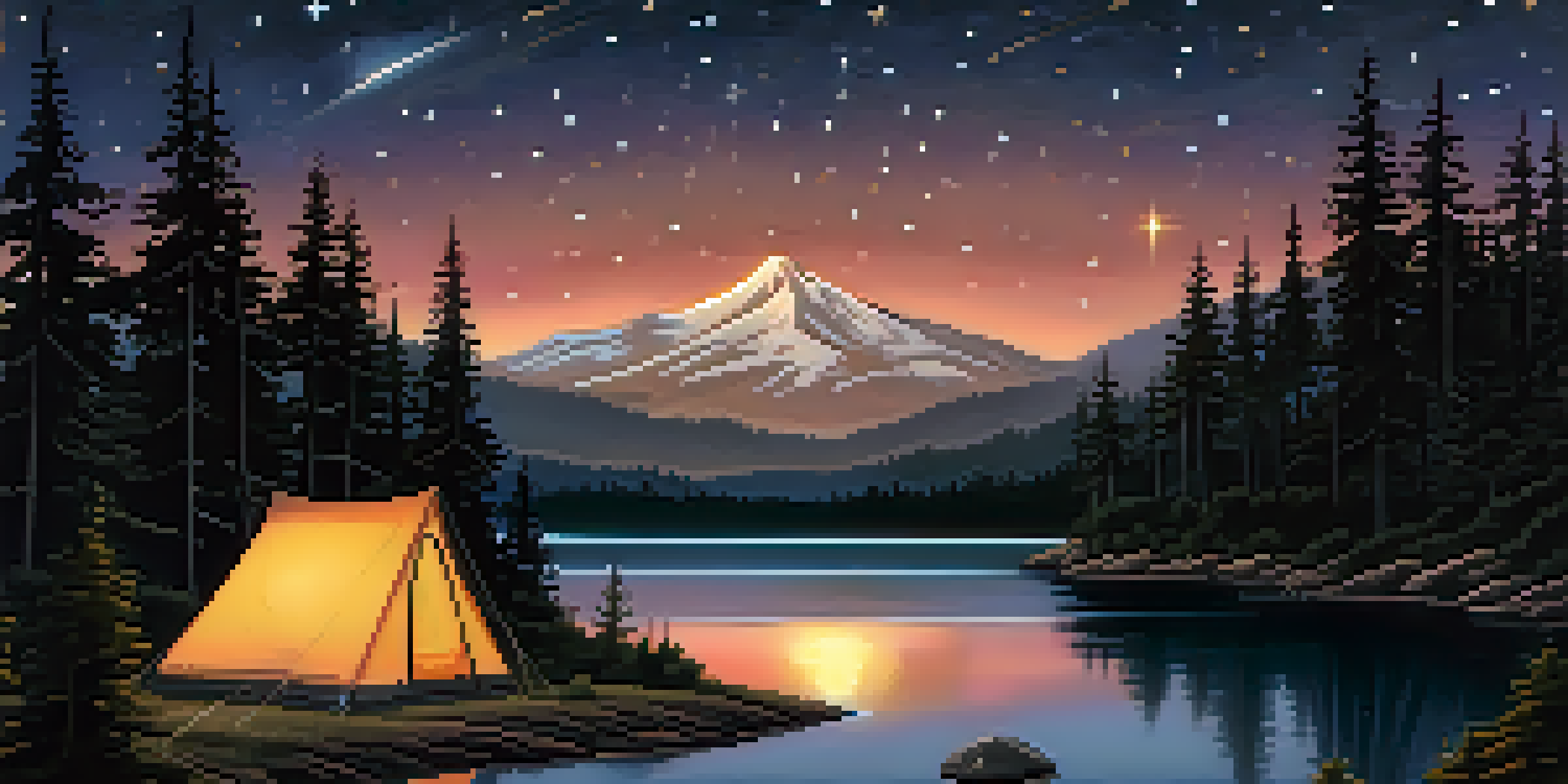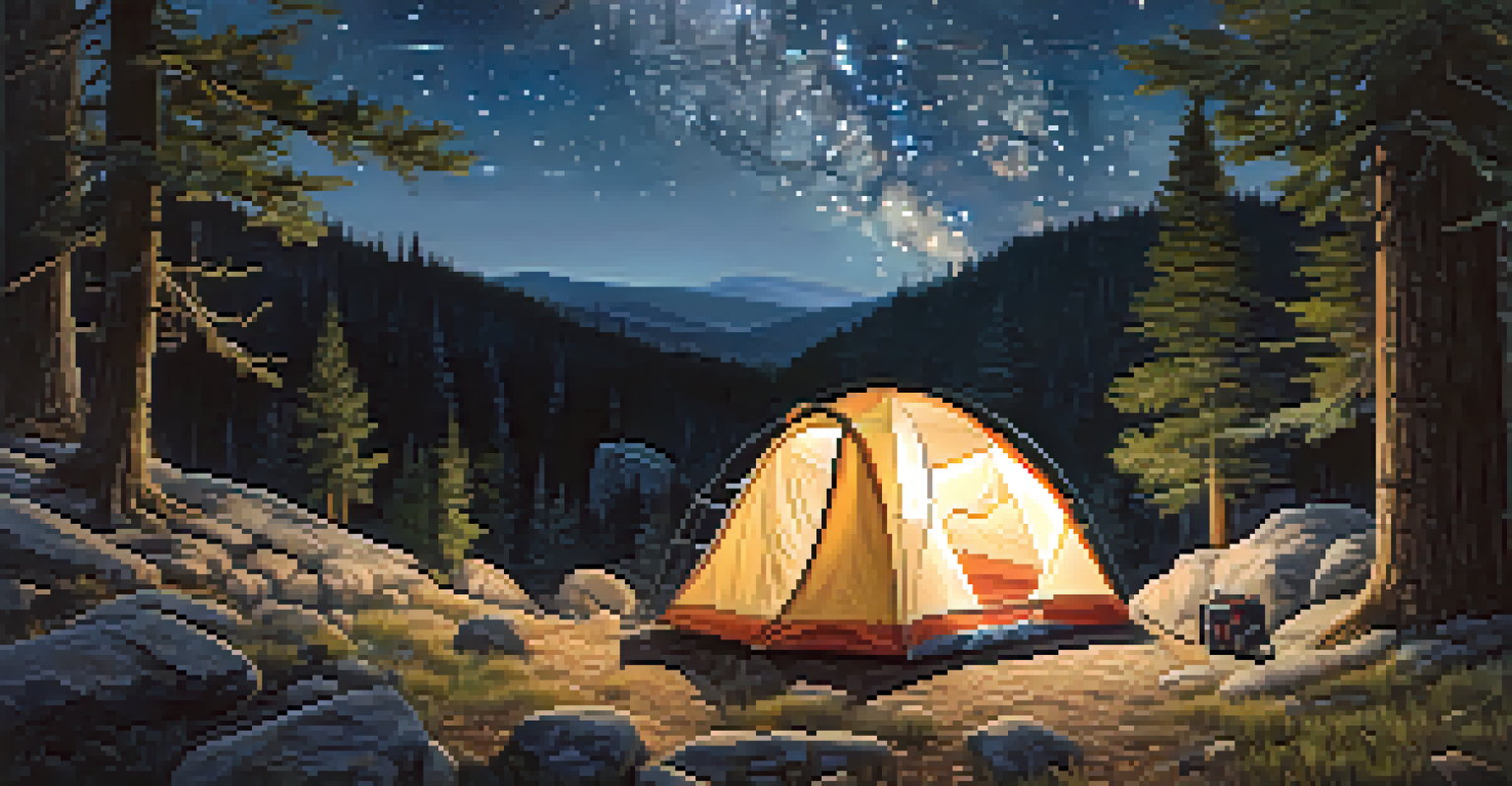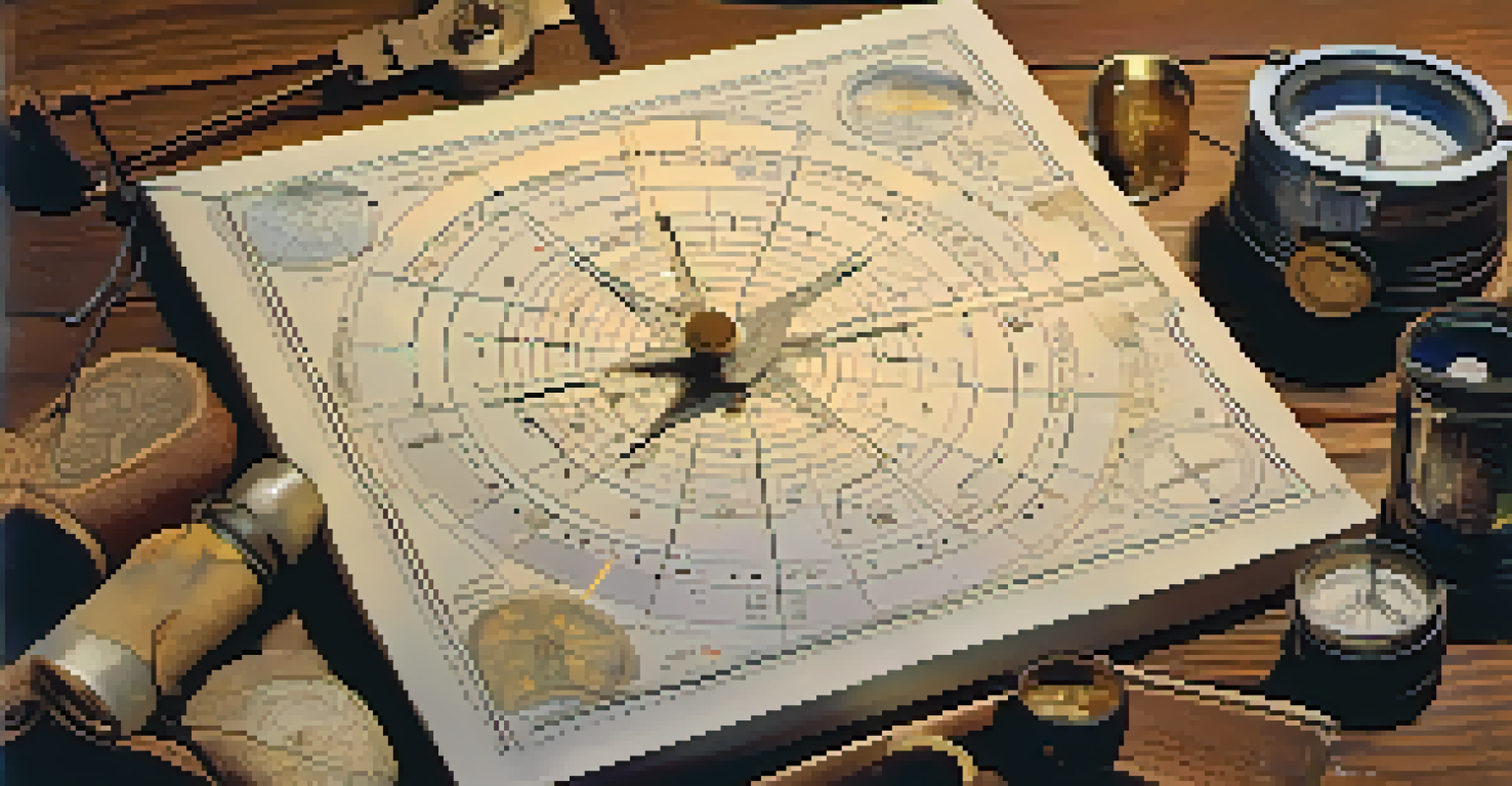Nighttime Navigation: Skills for Camping Under the Stars

Understanding the Basics of Nighttime Navigation
Navigating at night can feel daunting, but with some basic skills, it becomes manageable. The key is understanding how to use both natural and artificial light sources without losing your way. Familiarizing yourself with the area during the day also sets a solid foundation for nighttime exploration.
Not all those who wander are lost.
Imagine setting up your tent in a familiar spot during daylight; this knowledge becomes invaluable when the sun sets. Your memory of the terrain, landmarks, and sounds will guide you as darkness falls. This foundation helps reduce anxiety and boosts confidence when the stars come out.
Ultimately, nighttime navigation is about blending preparation with instinct. When you know your surroundings and utilize various tools, you can confidently explore under the stars.
Using the Stars to Navigate: A Timeless Skill
For centuries, people have used the stars for navigation, and you can, too! The North Star, for instance, is a reliable guide in the Northern Hemisphere. By locating this star, you can orient yourself and determine directions without a compass.

To find the North Star, locate the Big Dipper constellation first, which resembles a ladle. The two stars forming the outer edge of the Dipper point directly to it. Once you know where North is, you can easily establish other directions and navigate accordingly.
Night Navigation Skills are Key
Understanding your surroundings and using both natural and artificial light sources can make nighttime navigation manageable.
While modern tools are handy, there’s something magical about using the night sky as your map. It connects you to ancient explorers and enhances your camping experience with a sense of wonder.
Essential Tools for Nighttime Navigation
Equipping yourself with the right tools can significantly enhance your nighttime navigation skills. A reliable flashlight or headlamp is crucial, providing light for your path and allowing you to read maps or adjust your gear. Additionally, consider investing in a good compass and a star chart for celestial navigation.
The journey of a thousand miles begins with one step.
A headlamp is particularly beneficial as it frees up your hands for other tasks, like setting up your tent. Don’t forget extra batteries; nothing is worse than being caught in the dark with a dead flashlight. Familiarizing yourself with how to use these tools before your trip can save you from frustration later.
These tools aren’t just for emergencies; they’ll help you explore your surroundings with confidence. When you’re well-equipped, you’re free to enjoy the beauty of the night without fear of losing your way.
Practicing Situational Awareness at Night
Situational awareness is your best friend when navigating at night. This means being attuned to your surroundings, including sounds, smells, and changes in terrain. By engaging your senses, you can pick up on important cues that guide your navigation.
For instance, the sound of a nearby river can help you locate water sources, while the rustle of leaves can signal a change in wind direction. Keeping a mental note of these sensory details allows you to navigate more effectively and adds to the camping experience.
Essential Tools Enhance Navigation
Equipping yourself with tools like a flashlight, compass, and star chart boosts your confidence and safety while exploring at night.
Cultivating situational awareness takes practice, but it’s a skill that will serve you well beyond nighttime adventures. As you become more attuned to your environment, you’ll find that nature speaks to you in ways you never imagined.
Reading Maps and Using Compasses Effectively
Even in the age of GPS, knowing how to read a map and use a compass is invaluable. Maps provide a broader understanding of the terrain, while a compass helps you maintain your direction. Practice these skills during the day so you feel confident using them at night.
When you unfold a map, pay attention to symbols and elevation lines, which indicate the landscape. Knowing how to orient the map with your surroundings enhances your navigation skills. Once you feel comfortable, use your compass to set a bearing and follow it, adjusting as necessary.
Combining these tools with your natural navigation skills gives you the confidence to explore more remote areas. With a map and compass in hand, you’re ready to tackle new challenges under the stars!
Creating a Nighttime Navigation Plan
Before you venture out at night, it’s wise to have a navigation plan in place. This plan should include your route, estimated time, and key landmarks. Sharing this information with a fellow camper ensures someone knows your intended path in case you need assistance.
Think of your navigation plan as a roadmap for adventure. Include checkpoints where you can pause, take in the scenery, and reassess your direction. Planning ahead not only keeps you safe but also allows you to enjoy the beauty of the night.
Safety is Crucial When Camping
Prioritizing safety by planning your route, knowing potential hazards, and informing someone of your plans allows you to enjoy the night worry-free.
By having a well-thought-out plan, you can explore confidently while minimizing risks. Embrace spontaneity, but let your plan guide your steps under the stars.
Staying Safe While Camping at Night
Safety should always be a priority when camping at night. Familiarize yourself with potential hazards in the area, such as wildlife or rough terrain. Keeping a first-aid kit handy and knowing basic emergency procedures can make all the difference in unexpected situations.
Choosing a well-lit campsite away from cliffs or water sources helps minimize risks. Always inform someone about your camping plans, especially if you're venturing out alone. This way, someone will know where to look if something goes awry.

By prioritizing safety, you can focus on enjoying the beauty of the night. Remember, a well-prepared camper is a happy camper, and that peace of mind allows you to soak in the magic of your surroundings.